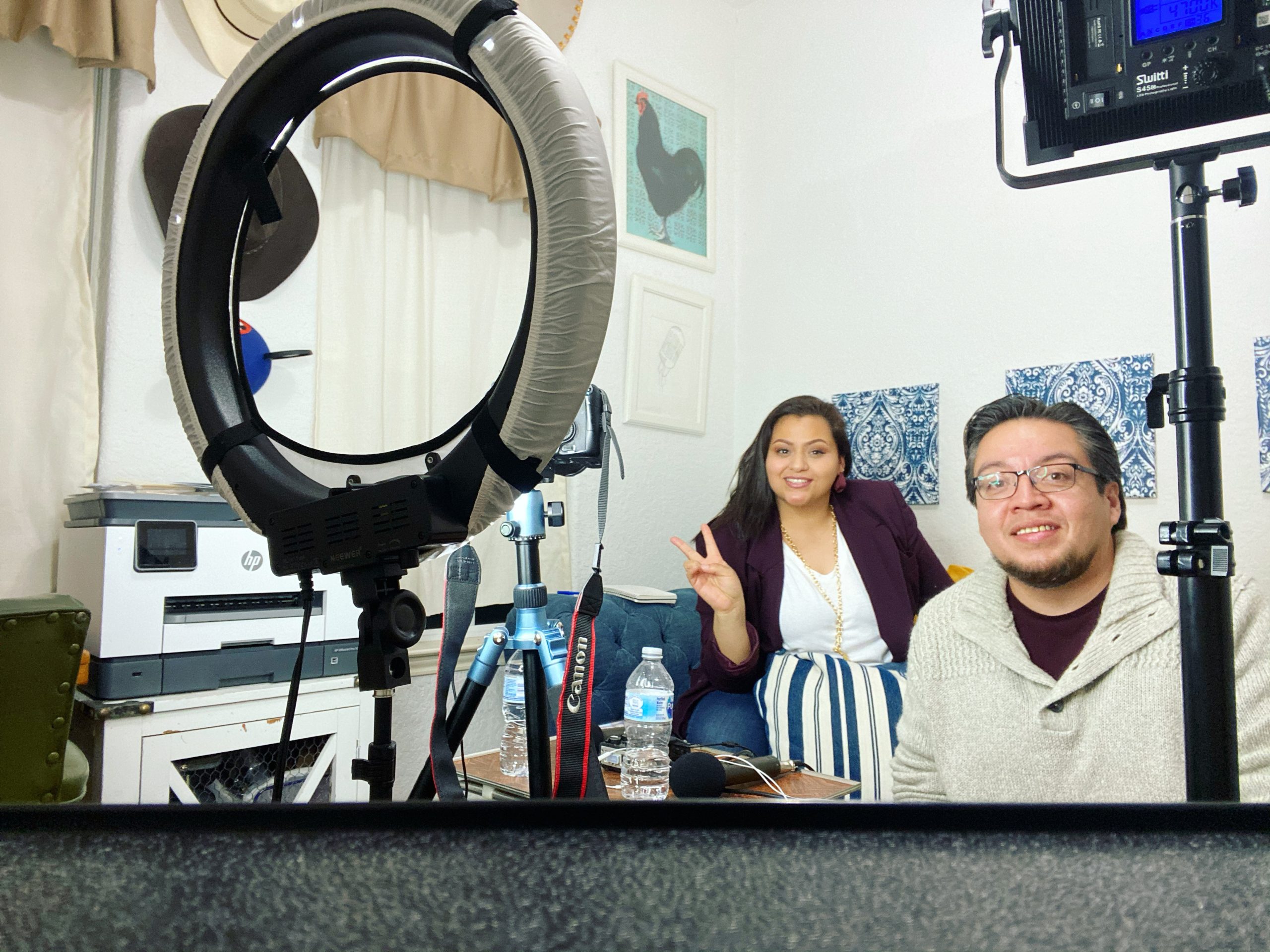He tries. He really does. We all do. It’s become an entire family effort to maintain Edgar’s bilingual skills. Even more so to ensure he is fluent in Spanish. Inevitably, as much as we try to avoid it, we always end up talking to him in English instead of Spanish. It’s not that we don’t feel comfortable speaking in only español, pero cómo que the words come out easier in English.

When he was younger, I think we were better at it. He was a lot more tolerant of our “speak Spanish!” commands anyway. Nowadays, nos sigue la corriente… but he has also made it perfectly clear English is the language he feels more comfortable in.
“Why do we have to speak in Spanish if we all speak English too?!”, he once asked us. To which all we could reply was ¡en español! as we tried our best not to crack up at his pretty smart aleck complaint.
The kid had a point. Why were we insisting on his speaking Spanish? Why were we hung up on the idea of making him completely bilingual? My parents never put that much outward effort in teaching us Spanish. We spoke it because it was the only language they spoke at home. We learned it because if we wanted to communicate with our family in Mexico, and most of the adults in our hometown of Edinburg, Texas in the Valley, we had to do it en español. For us it was a matter of necessity. Is it the same for Edgar and his generation?

Maybe not. Perhaps he doesn’t have to speak Spanish to speak to us, or even his grandparents for that matter now. Maybe we don’t visit our family in Mexico nearly enough these days. Maybe he’s right. Perhaps it’s not 100 percent essential that he learn correct Spanish. Regardless, we’re not going to stop trying!
Ironically, as of late he’s the one blurting out Spanish words and phrases as often as he can to us. It’s much more natural this way… or is that organic?



9 thoughts on “Raising a Bilingual Kid: Getting Your Kids to Buy Into español”
We are already struggling with this and my son Marco is not even 4.
I think you are unfortunately dead right that his generation is not going to automatically find it necessary. They have to be shown the way.
A couple weeks ago we were at a friend’s baptism party for their son (Mexican-Filipino) and the Mexican side of their family noticed that I speak to our boy a lot in Spanish, even though I am not Hispanic at all. They also all commented on the same difficulty you are describing, with their own kids.
What I said to them is the way I look at it, the kid wants to eat candy all day every day too, but we have to make him eat vegetables, and he doesn’t usually like it or understand it. He’s not supposed to know what’s best for him, that’s why God made parents. Pressure to “fit in” makes kids do all kinds o’ dumb stuff. By the time he might be able to have an informed, responsible opinion and I can “soltar la rienda”, if he’s been raised bilingual up to that point, there’s nothing he can do about it anymore by then. (And maybe the people at the party would have been more impressed with me had I not inserted a maniacal laugh BWAHAHAHA).
My son even recently started complaining about me speaking Spanish to him, and tries to make a deal with me that I’ll only do it sometimes. I told him “yo te voy a hablar en español cuando yo quiero”. Guess we’ll have to see how long I get away with that 🙂
I like that you are not panicking. It’s a long term project. My husband sometimes doesn’t understand his older kids when they speak English, already at 8 & 10 years old. So there are high hopes the youngest will be more truly bilingual since it is a different mom (me) working for it. But we get frustrated and my husband almost to the point of giving up. For about two years he has been waiting for Marco to actually say much of anything in Spanish to him, spontaneously. He’ll talk to other people, just not his dad (to whom it means the most). When we go to Mexico, the boy speaks to everyone in Spanish EXCEPT his uncle who looks almost like a twin of his father. Because he refuses to speak to his dad in Spanish, therefore the uncle too.
HOWEVER, just yesterday, after coming home from a week with my family in Ohio (all in English), his dad says to him “hablame en español” and Marco says “no puedo”.
LOL!!!!
Thank you for the comment, Beth! Firs of all! I am totally with you on the carcajada… who cares if it got in the way of your point. It was fun, LOL! So about your son, Edgar was about the same age when he started protesting the Spanish. Our response was to immerse him more in our cultura by introducing new parts and aspects of it to him. Subsequently, he just got used to us speaking to him in Spanish. It also is really helpful that his grandparents all speak to him in only Spanish.
Another thing, I think speaking in Spanish to your parents (in this case your husband) can sometimes be a little embarrassing for kids. Growing up, there were certain people I just was not speaking Spanish around. I don’t know why exactly, but in a way I guess there was some embarrassment that the words would not come out right, or that I would look like a fool in some way. Eventually, as it became more natural… I was no longer ashamed of my poor Spanish. Today, I’ll talk to anyone in Spanish. I love it when people switch back and forth with me 🙂
I really hope you guys continue working with your son. Remind your hubby it just takes time and patience!
Abrazos!
Don’t worry so much abou it. I decided early on not to sweat it so much. My daughter needed to first do better in school learn to read and write. Later we would include more Spanish. As it turns out her cousins kept her trying and her rare visits to Mexico kept her interested. She decided to take Spanish in HS and then it was I that was constantly being corrected. I could no longer park “el carro en el garage” it was “el coche en la cochera”. I hate Spanish AP! her brother is learning Street Spanish. I did buy “Hooked on Spanish” my mother did not make as big a deal as she did over the can of beans she found in my pantry.
Thanks for the advice, Rosie 🙂
Just don’t give up! I just wrote a post about it this week. I’m also struggling with my sons, I’m the only one speaking in Spanish at home all day long, I don’t care if they answer in English, they have proved that they understand everything I say and they can speak Spanish if they want and when they want . That is my gift for life, we try to make it fun and I always try to reward their effort. Once you give up it’s going to be very hard to get them back to speak Spanish 🙂
http://www.mamihablaespanol.com
Nice to hear from another who is facing the same challenges. I’ve gotten pretty tricky with my 4 year old daughter. One of the things that works the best is that we all know that kids WANT things… things that they would ordinarily ask for in English that we would probably grant them anyway. I use this to my advantage and if my daughter wants it, she needs to ask for it in Español to get it. Otherwise, all bets are off! It works.
I also felt embarrassed to speak Spanish to my mother around my friends when I was her age, so I have made a point to purposely address that with her peers. I encourage her to find a “Spanish friend” at preschool and talk to them (and I’ll talk to them too!). I visit her class often and sit in on their Spanish class and join in. When I come in to pick her up, if I am approached by her friends, I ask them to say a word in Spanish and I talk to her classmates in Spanish bits. They respond.
All of this seems to be working quite well. Often a friend of hers will ask me “Why do you talk Spanish?” and I explain to them that my mother is from Spain where they speak this and if they ever want to visit a magical country where they speak Spanish, they should learn how also.
I incorporate much of what I’ve learned raising my daughter into our lessons and when I teach Spanish. To me, it’s finding out what their motivator is to speak it and addressing that. In one of my classes I had a puppet “Príncipe” and “Principessa” and spoke about the magical castle where they only speak Spanish… would they like to visit this place too? Again… it worked.
I commend you and your posters for persevering in this mission. I can go on and on about the benefits that you are all providing for your children in just making the effort alone! Keep up the good work!
Language is a gift we give our children, like music or art. Sometimes they respond to our gifts, other times they have their own ideas. I grew up in a multilingual house, but I resisted speaking unless absolutely required (usually in country). It was not my native language and I knew it, but I was able to achieve a pretty high level of proficiency even without talking a lot.
As a language professor I recommend total immersion. It is the best–a few weeks can be like months of work in terms of making big gains quickly in the language. When that isn’t possible, consistent contact with the language in fun and meaningful contexts will do the job too. Some formal classes in the language can be helpful as well. Greeks and Polish people send their kids to language schools at the churches or in the community.
What wonderful insight, La Profe! Thank you very much 🙂
We are located in Paisley, close to the M8 motorway.